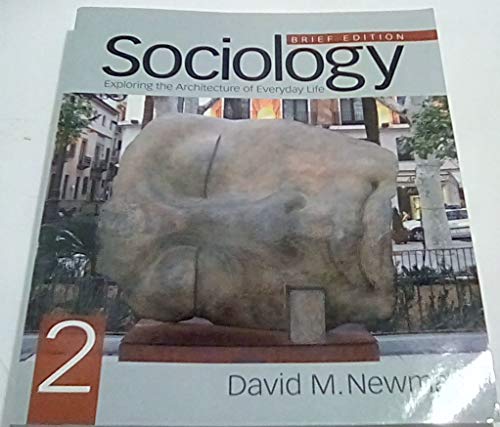The book that keeps students reading!
In this Second Brief Edition David M. Newman takes students inside today′s pressing sociological issues and shows them how the compelling events on their minds today - such as the current economic recession and the Obama presidency in the US - relate to enduring sociological concepts. Throughout the new edition, Newman introduces students to the fascinating world of sociology, using current real-world examples and personal observations that help them understand how sociology affects them in a personal way.
New to This Edition:
• The most up-to-date information on unemployment, spending patterns, and other economic information
• The interconnections between private life and massive historical occurrences, such as the global economic recession and the election of Barack Obama
• The most current statistical information possible
• Charts and graphs have been updated and revised
David M. Newman earned his BA from San Diego State University in 1981 and his graduate degrees from the University of Washington in Seattle (MA 1984, PhD 1988). After a year at the University of Connecticut, David taught at DePauw University for more than 30 years. He currently teaches at Colgate University. David teaches courses in contemporary society, deviance, mental illness, family, social inequality, and research methods. He has published numerous articles on teaching and has presented research papers on the intersection of gender and power in intimate relationships. Recently most of his scholarly activity has been devoted to writing and revising several books, including Sociology: Exploring the Architecture of Everyday Life: Brief Edition (SAGE, 2020); Identities and Inequalities: Exploring the Intersections of Race, Class, Gender, and Sexuality (McGraw-Hill, 2021); and Families: A Sociological Perspective (McGraw-Hill, 2009). His most recent book, A Culture of Second Chances: The Promise, Practice and Price of Starting Over in Everyday Life (Lexington Books, 2019), examines the cultural meaning, institutional importance, and social limitations of “second chance” and “permanent stigma” narratives in everyday life.
![]()
